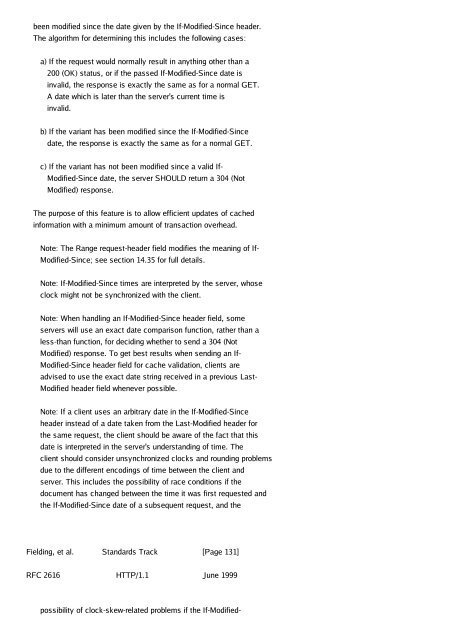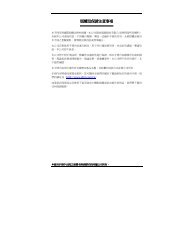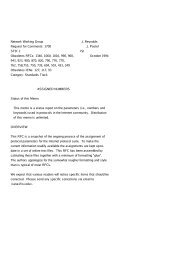Network Working Group R. Fielding Request for Comments: 2616 ...
Network Working Group R. Fielding Request for Comments: 2616 ...
Network Working Group R. Fielding Request for Comments: 2616 ...
You also want an ePaper? Increase the reach of your titles
YUMPU automatically turns print PDFs into web optimized ePapers that Google loves.
een modified since the date given by the If-Modified-Since header.The algorithm <strong>for</strong> determining this includes the following cases:a) If the request would normally result in anything other than a200 (OK) status, or if the passed If-Modified-Since date isinvalid, the response is exactly the same as <strong>for</strong> a normal GET.A date which is later than the server's current time isinvalid.b) If the variant has been modified since the If-Modified-Sincedate, the response is exactly the same as <strong>for</strong> a normal GET.c) If the variant has not been modified since a valid If-Modified-Since date, the server SHOULD return a 304 (NotModified) response.The purpose of this feature is to allow efficient updates of cachedin<strong>for</strong>mation with a minimum amount of transaction overhead.Note: The Range request-header field modifies the meaning of If-Modified-Since; see section 14.35 <strong>for</strong> full details.Note: If-Modified-Since times are interpreted by the server, whoseclock might not be synchronized with the client.Note: When handling an If-Modified-Since header field, someservers will use an exact date comparison function, rather than aless-than function, <strong>for</strong> deciding whether to send a 304 (NotModified) response. To get best results when sending an If-Modified-Since header field <strong>for</strong> cache validation, clients areadvised to use the exact date string received in a previous Last-Modified header field whenever possible.Note: If a client uses an arbitrary date in the If-Modified-Sinceheader instead of a date taken from the Last-Modified header <strong>for</strong>the same request, the client should be aware of the fact that thisdate is interpreted in the server's understanding of time. Theclient should consider unsynchronized clocks and rounding problemsdue to the different encodings of time between the client andserver. This includes the possibility of race conditions if thedocument has changed between the time it was first requested andthe If-Modified-Since date of a subsequent request, and the<strong>Fielding</strong>, et al. Standards Track [Page 131]RFC <strong>2616</strong> HTTP/1.1 June 1999possibility of clock-skew-related problems if the If-Modified-













